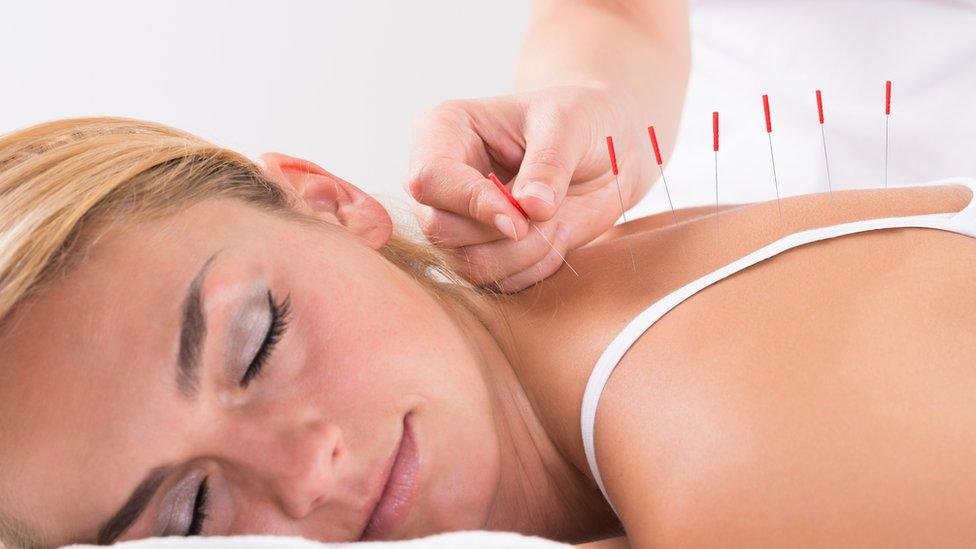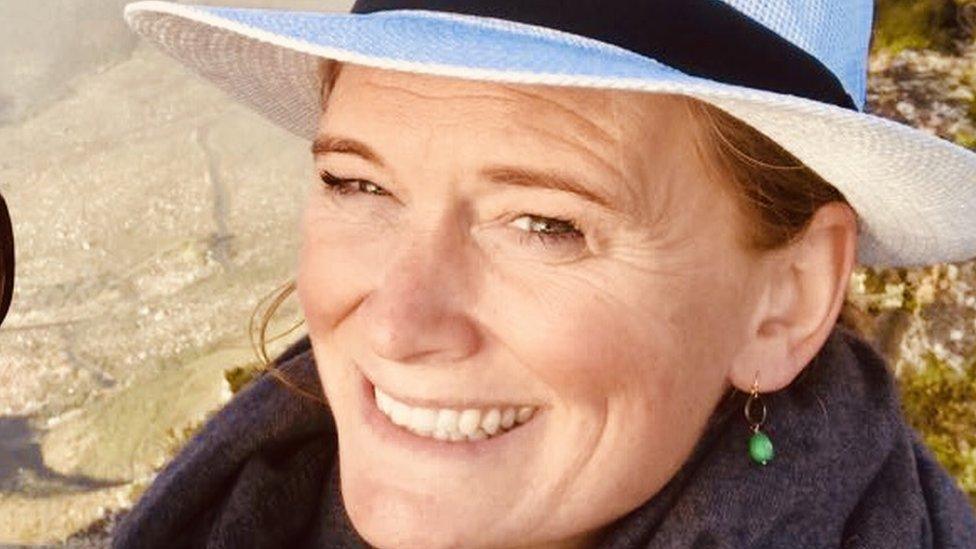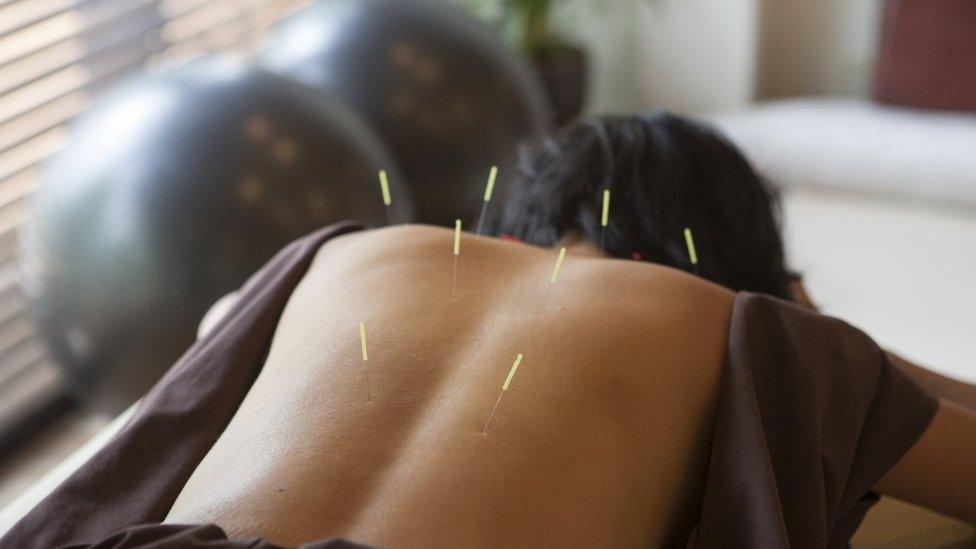Can acupuncture help menopause symptoms?
- Published

Hot flushes may be reduced by acupuncture
For some women, the menopause and the years leading up to it, can be a time of troubling emotional and physical symptoms.
Hormone replacement therapy (HRT) eases symptoms like hot flushes and sweats, but it's not suitable for all women.
Now, a small study published in BMJ Open, external suggests acupuncture may be worth considering.
The Danish study found that five weeks of acupuncture in women with menopausal symptoms reduced hot flushes, night sweats, sleep disturbances and emotional problems.
Researchers at the University of Southern Denmark cautioned that they couldn't rule out that the results were down to the placebo effect.
The placebo effect is where a treatment works because a patient believes it will, rather than as a result of the treatment itself.
One of the study authors, Prof Frans Boch Waldorff, from the University of Southern Denmark, said: "We can't explain the underlying mechanism behind acupuncture, nor determine how much of the effect is caused by placebo.
"But this was a safe, cost-effective and simple procedure, with very few side-effects reported by the women.
"Women seeking acupuncture treatment for menopausal symptoms should be informed of the current evidence, and its limitations, so they can make a decision."
How was the study done?
Acupuncture is a treatment derived from ancient Chinese medicine, where fine needles are inserted at certain points in the body.
Researchers recruited 70 women with moderate-to-severe menopause symptoms.
This group was then split in two. The first group, the control group, received no acupuncture until week six of the study. The second, intervention group received weekly acupuncture treatments from experienced local doctors.
Each participant then completed a questionnaire to self-evaluate their symptoms at three and six weeks.
By six weeks the women in the acupuncture group recorded moderate improvements in all symptoms compared with the group having no acupuncture.
A total of 80% of the women in the acupuncture groups also said they felt the sessions had helped them.
'I was anxious, bloated and not sleeping'

Vanessa says acupuncture helped ease her menopause symptoms
Vanessa Southgate, an occupational therapist from Shoreham-by-Sea, West Sussex, started suffering menopause symptoms when she was 46.
"I'd always slept well, despite stressful events in my life. Yet suddenly I would wake in the early hours and not be able to get back to sleep. I felt bloated, had a foggy head, night sweats, and a level of anxiety I had never experienced before," she says.
The doctor suggested HRT but Vanessa decided she wanted to explore alternative treatments.
She went to see Emma Vickers, a licensed acupuncturist in Brighton.
"After a few sessions, the night sweats weren't as bad, and my sleep improved. It really helped with the bloating, that was so uncomfortable before. It also helped the anxiety. After the treatment I felt way more relaxed, and that I could manage things more."
Vanessa now goes for weekly acupuncture treatments. Sometimes she takes a break, and when the symptoms return she books in again.
"I do feel it is the acupuncture that makes the difference, and also working with Emma. She has suggested supplements, and advised on nutrition.
"And we've also looked at my work-life balance and switching off at night. These are things I knew already, but it makes a difference when somebody suggests you try something."

Acupuncture is an ancient Chinese tradition
Dr Channa Jayasena, a consultant in reproductive endocrinology at Imperial College and Hammersmith Hospital, said: "Menopausal flushes will affect most women at some point. HRT cannot be given to women with certain types of cancer.
"This leaves a huge gap in the market for simple and safe therapies to reduce hot flush symptoms.
"I suspect that most of the effect of acupuncture is a placebo effect, but is that a really bad thing? Anything that is safe, affordable and helps the wellbeing of patients while reducing symptoms is worth considering if HRT is not an option."
Last year, an episode of the BBC programme Horizon looked into the potential power of the placebo effect. The programme prescribed fake pills to 100 volunteers with back pain. Half of the participants found significant relief from taking the pills - even though they were fake.
Acupuncture treatment is available on the NHS, usually for migraines or chronic headaches.